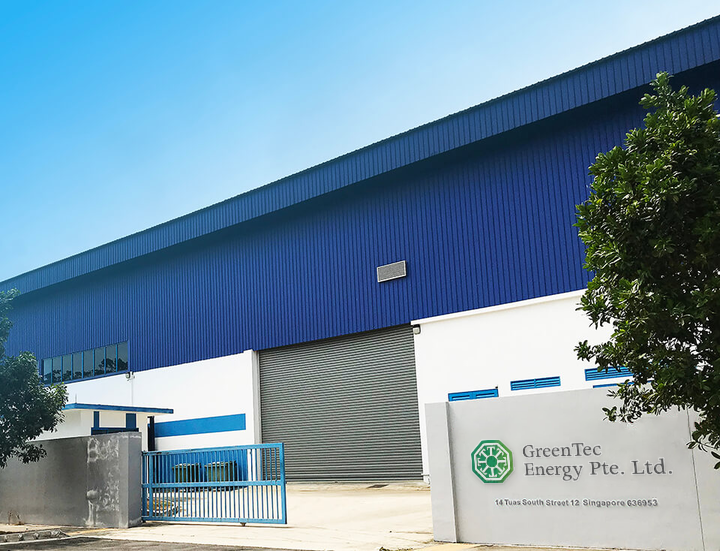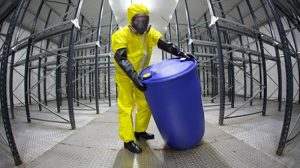The Proper Way on How to Dispose Coolant (Antifreeze)
May 9, 2024

Imagine this: You’re in the process of changing your car’s coolant which you decide to throw down the drain. This is a huge environmental hazard as it can have serious consequences on the environment. So what are the right waste coolant disposal methods?
Let's take a look at the proper procedures and what happens when you don't dispose coolant responsibly:
What is Coolant?
Coolant or antifreeze is vital to your car's cooling system. It's a fluid that serves various purposes, mainly preventing your engine from overheating in hot weather. It also protects your engine from freezing in cold temperatures.
Coolant is largely made up of ethylene glycol, a substance that is toxic to humans, animals and the environment. On top of that, you’ll also find other additives like corrosion inhibitors, surfactants and dyes.
These all work together to ensure the coolant functions effectively, protecting your engine from corrosion and rust. However, the combination of these substances creates a hazardous material that must be disposed of properly.
Proper Coolant Disposal Procedures
Coolant must never be dumped into the drain or onto the ground. This will allow the fluid to pollute nearby soil and groundwater. The best you can do is to follow the right waste coolant disposal procedures like the following:
Collecting Used Coolant
Always collect your car’s coolant in a clean container. You should then label it as “used coolant” to avoid any confusion. Make sure the container has a secure lid to prevent spills or leaks during transportation.
Never Mix Coolant with Other Fluids
Avoid mixing used coolant with other fluids. This includes oil, brake fluid or windshield washer fluid. Mixing fluids can contaminate the coolant and make it difficult to recycle properly.
Recycling Facilities
Visit your local recycling centre for proper disposal. Check with your local facility to see if they have specific procedures for drop-off and recycling. You can even check in with some auto shops to see if they accept coolant for recycling.
Professional Disposal
Contact a professional waste disposal company if you’re unsure about the whole process. We have the expertise and resources to handle hazardous materials like coolant.
Local Regulations
Be sure to familiarise yourself with the guidelines set by the The National Environment Agency (NEA). There's a ton of rules and regulations surrounding waste disposal and they can be overwhelming for the average citizen. That's why opting for professional services is always the best choice!
What Happens When You Don't Dispose Coolant Properly?
There are serious consequences when coolant is not disposed of properly. Here’s what can happen:
Environmental Pollution
Dumping coolant down drains or onto the ground contaminates soil and groundwater. Ethylene glycol and other additives in coolant can leach into the environment, harming plants, animals and aquatic life. This pollution can have long-lasting effects on ecosystems.
Health Risks
Ethylene glycol is toxic to humans and animals. Ingesting even small amounts can cause serious health problems, including kidney damage and neurological issues.
Accidental ingestion by pets or wildlife is a real concern if coolant is improperly disposed of.
Legal Consequences
Improper disposal of coolant can lead to legal consequences. The NEA will implement fines not exceeding $50,000 for first timers with the possibility of jail. Various locations have different fines but the penalties are all severe nonetheless.
Contaminated Recycling
Coolant becomes more difficult and expensive to recycle when mixed with other fluids. It may not be recyclable at all! This adds to the burden of waste management systems, reducing the effectiveness of recycling efforts.
Damage to Vehicles
Coolant that is contaminated or improperly disposed of can damage vehicles. When recycled coolant is mixed with fresh coolant, it can affect the performance of the cooling system and lead to engine damage. This can result in costly repairs for vehicle owners.
Conclusion
Ensuring environment and public safety requires responsible disposal of coolant. Remember, coolant is not just a simple fluid; it’s a hazardous material that demands proper handling.
By following the right waste coolant disposal procedures, you can prevent environmental pollution and potential health risks. And remember to stay informed about local regulations and seek professional guidance if needed.
Contact us to find out more about coolant and other waste disposal methods.
 GreenTec Energy Pte Ltd (GTE) is a waste management company located in Tuas, Singapore.
GreenTec Energy Pte Ltd (GTE) is a waste management company located in Tuas, Singapore.
Our service includes Industrial waste, Oily waste, Marine waste.
To provide a hassle free solution to our customer is always the key approach and to ensure a win-win situation towards. As a NEA approved environmental company in Singapore, we take all our services seriously and to ensure maximum safety with compliances applied. Every step of our disposal processes are also designed to meet NEA & SCDF requirements, with latest treatment facilities and laboratories to test and treat all incoming waste before disposal.
GTE operates a total land area of about 100,000sqft at 14 Tuas South Street 12 Singapore 636953. With our comprehensive logistics and transportation fleet, we provide prompt and efficient services in transportation of waste to our premises.



